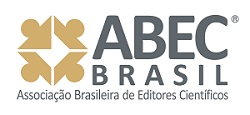Silicon fertilization on production of upland rice
DOI:
https://doi.org/10.5039/agraria.v7i4a1321Keywords:
ash, cultivar, yield, silicon, soilAbstract
Rice grain processing generates large quantities of straw, becoming an environmental pollutant due to inappropriate disposal and slow degradation. However, when exposed to high temperature produces high levels of silicon, which although not being considered an essential element, can bring physiological benefits to crops. The objective of this study was to evaluate the influence of silicon fertilization from the ashes of rice grain husk on the yield of upland rice. The experiment was carried out in a randomized block design with three treatments of application of fertilizers used by the farmers (AB). This fertilization consisted of application of 300 kg ha-1 (4-20-20) 10 days after sowing and 50 kg ha-1 (20-0-20) when the plants showed active tillering. Therefore, the applied treatments were: T1 – application of fertilizer (AB), T2 – AB + 1200 kg ha-1 of silicon, T3 – AB + 2400 kg ha-1 of silicon, with seven replications. At harvest the number of seedlings, tillers and panicles per m2, panicles per plant, spikelets per panicle, spikelets with total and sterile grains per panicle; spikelet fertility; weight of 100 grains; grain yield in kg ha-1 and the percentage of Si absorbed by plants were determined. The fertilization based on rice husk ash increased pH, base saturation, Ca, Mg and P in soil. There was no significant response to the doses of silicon fertilization on the evaluated agronomic parameters.



